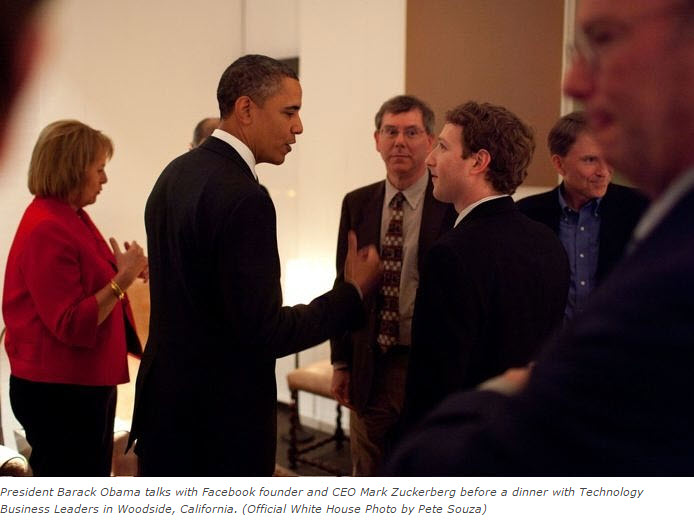
The White House social media archive tells the story not just of how we’ve used these platforms to engage with people wherever they are, but also of how the digital landscape has changed over the past eight years. Citizens, students, companies, and organizations answered this call to action—and today we’re excited to share some of their innovative archival projects with you.
By Joshua Miller
Director of Product Management
(CC BY 3.0) whitehouse.gov
At the end of October, we shared our plans for preserving and passing on the digital history of the Obama administration, and invited the American people to “come up with creative ways to archive this content and make it both useful and available for years to come.” From the very beginning, our mission has been to reach Americans and people around the world on the channels and platforms where they already spend their time. The White House social media archive tells the story not just of how we’ve used these platforms to engage with people wherever they are, but also of how the digital landscape has changed over the past eight years. Citizens, students, companies, and organizations answered this call to action—and today we’re excited to share some of their innovative archival projects with you:
- ArchiveSocial, a social media archiving platform, is hosting an open archive consolidating more than a quarter-million White House social media posts that are easily searchable by date, platform, and keyword. The open archive is now available to the public at http://ObamaWhiteHouseArchive.social
- Rhizome, a digital art organization, is publishing a series of multi-media, digital essays that explain Internet culture associated with the Obama administration—starting with the history of the “Thanks Obama” meme, theFirst Lady’s Turnip Vine, and the #LoveWins hashtag on Instagram and Twitter. Learn more on Rhizome’s website.
- MIT Media Lab’s Electome group and Derek Lieu, a programmer, both used topical analysis to understand what issues the White House was talking about most on Twitter. Electome’s interactive tool compares Administration tweets with a sampling of citizen tweets, and Derek’s analysis examines and how White House tweet topics fluctuated over the course of the Administration.
- GIPHY, a GIF search engine, will launch a page that enables the public to view all of the GIFs that the White House has ever shared, as well as a collection of all of the White House’s Vines. The page will also include many other White House related GIFs that have been pulled together by GIPHY’s Editorial team. Check it out atgiphy.com/Obama
- A new Twitter bot built by the Portland, Oregon-based studio, Feel Train, will republish White House tweets over the next eight years to mark some of the most significant moments of the Obama administration as experienced on Twitter. Follow along by visiting @Relive44 on Twitter.
- Students will be diving into our social media data, too. At the University of Texas-Austin, students in Dr. Amelia Acker’s graduate seminar will be utilizing White House social media data in their final projects. And NYU’s Interactive Telecommunications Program (ITP) Fellows are hosting an “Obamathon” on January 6th—a special hackathon to spawn the creation of new projects, like the ones listed above.
- Internet Archive is making White House social media data available to download from their website—ensuring it’s publicly-accessible for years to come—and hosting a public hackathon this Saturday, January 7th.
The White House convened these citizens in the hopes that their creations would inspire people (like you) to dive into the archives themselves—to build research tools, art projects, and the like. That’s why, starting today, you can download the White House’s Twitter, Facebook, and Vine archives yourself. All of the tweets published by President Obama and the First Lady are available, as well. We can’t wait to see what you make.
